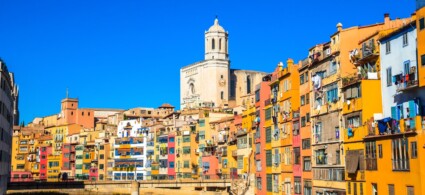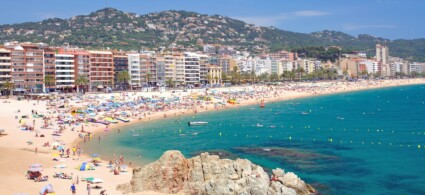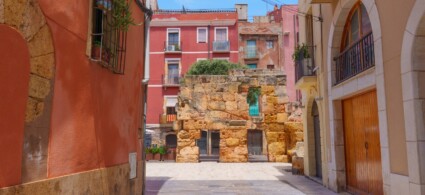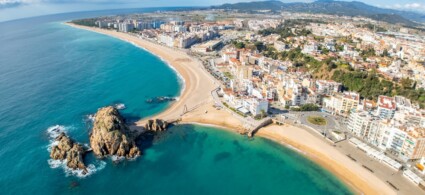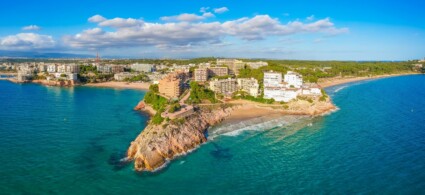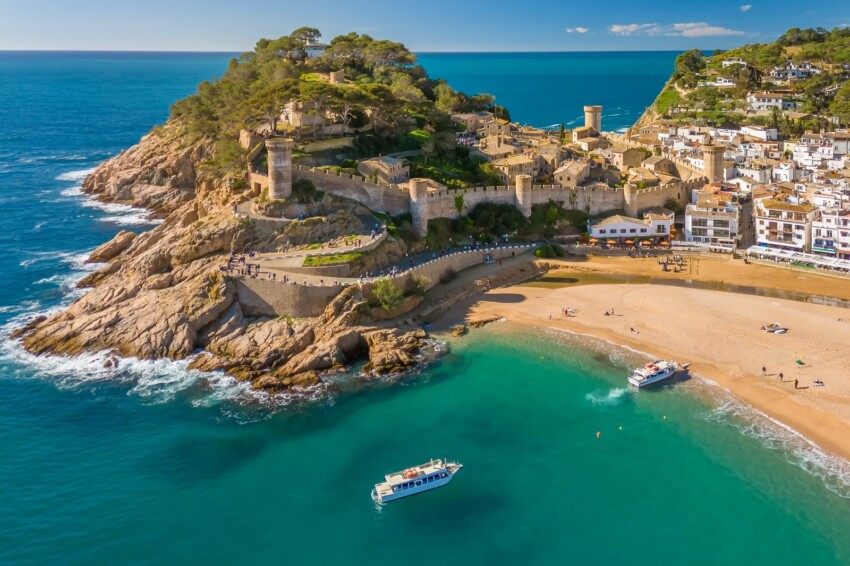

Catalonia is one of Spain’s richest regions, and not just in an economic sense: it is rich in history, culture and traditions. Some of Spain’s most imaginative and ingenious artists were born here, such as Joan Mirò, Salvador Dali and Antonio Gaudí, as well as two opera greats like Montserrat Caballè and Josè Domingo Carreras.
Perhaps so much artistic ferment is due to the fact that Catalans have joie de vivre in their blood: they are passionate, fun, proud and vital. Their innate fantasy is in the air and is contagious: it is impossible to be sad during a holiday in Catalonia!
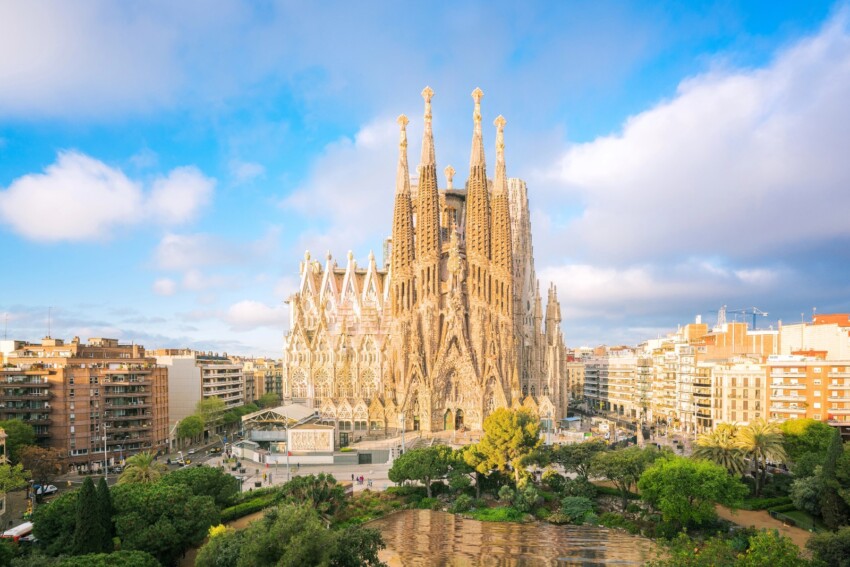
For many tourists, Catalonia is synonymous with Barcelona, its wonderful capital. A truly unique, creative and dynamic seaside city, loved by tourists of all ages.
The ingredients of its success? The ingenious and bizarre art of Antonio Gaudi, which finds its highest expression in the modernist houses and the magnificent Sagrada Familia, deep-rooted popular traditions that give life to colourful fiestas, imaginative and tasty cuisine, legendary nightlife, characteristic historical quarters, beautiful city beaches and legendary chiringuitos where you can enjoy an aperitif with a sea view at sunset.
For the amount of cultural attractions and entertainment on offer, you can stay in Barcelona for a week or more without getting bored, but if you want to get to know Catalonia in more depth, also visit the other cities in the region, such as Tarragona, a seaside city founded by the Romans: don’t miss the impressive archaeological complex of Tarraco and the Poblet Monastery, and Girona, the largest city in northern Catalonia, with a beautiful medieval old town, Gothic palaces, museums and art galleries
A visit to Lleida, a beautiful town nestled in the centre of the fertile plain of the Segre river, with magnificent churches and interesting museums, is not to be missed on an itinerary in Catalonia.
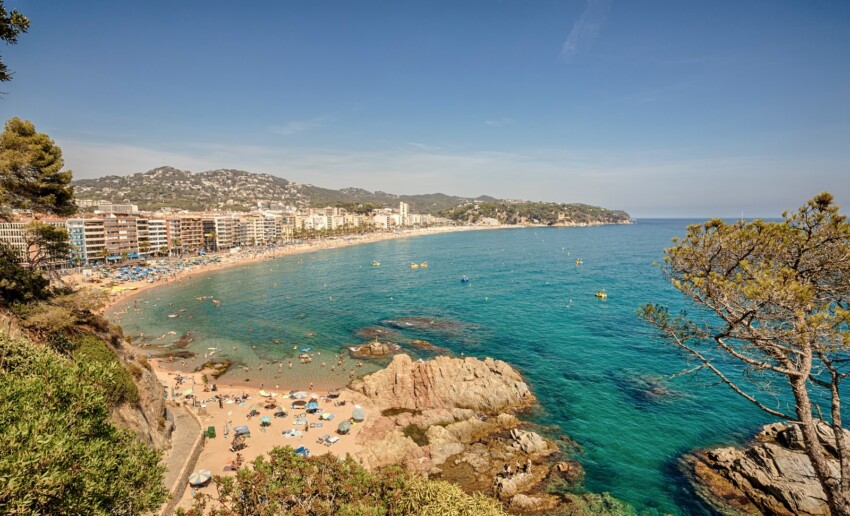
Catalonia is also an ideal destination for a wonderful beach holiday: easy to get to, with hundreds of kilometres of coastline dotted with beaches to suit all tastes, from long golden sandy beaches to tiny rocky coves and quaint villages where you can enjoy excellent fish dinners, paella or typical Catalan specialities.
The two most famous areas for beach tourism in Catalonia are the Costa Brava and the Costa Dorada, washed by crystal-clear sea that contrasts with the surrounding green vegetation. Among the most beautiful and famous resorts are Sitges, Cadaqués, Lloret de Mar, Salou, Figueres and Reus.
The main gateway to Catalonia is Barcelona International Airport, from where dozens of planes depart and arrive daily to and from practically every city in Europe. Most tourists enter Catalonia from here, but there are also other alternatives, first and foremost Girona airport, a small airport that has had the enormous good fortune to have been ‘elected’ by Ryanair as an alternative destination to reach Barcelona. The glories of Girona airport are now gone, but the Irish low-cost airline continues to use it with good success, especially during the summer season.
There is also another international airport in Catalonia, located in Reus not too far from Tarragona. However, at least as things stand, there are few international flights: the Costa Dorada is in fact a stronghold of British tourism and flight operations follow this trend without exception.
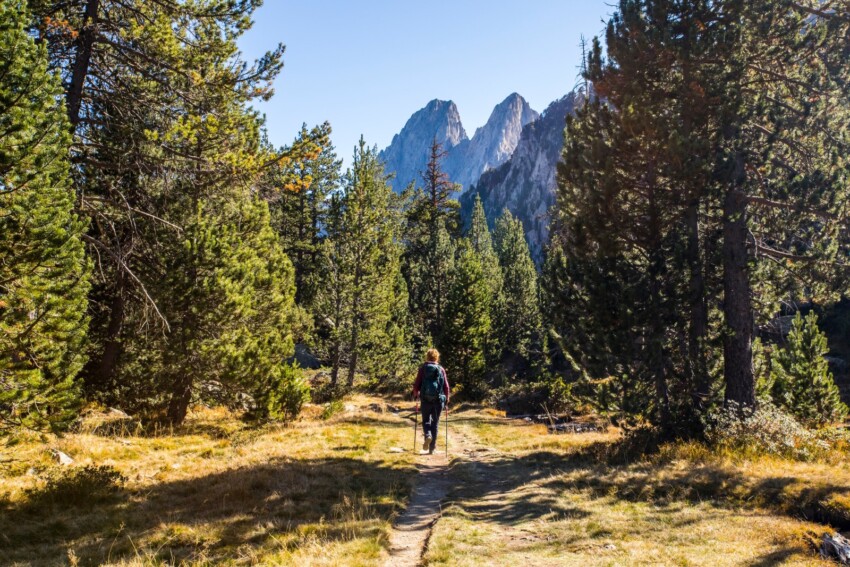
Catalonia is a region in north-eastern Spain, squeezed between the Pyrenean mountains and the Mediterranean Sea. To the north it borders France and the small Principality of Andorra, to the west the region of Aragon, to the south the Valencian Community, while to the east it is entirely washed by the sea.
Despite covering a relatively small area, the territory of Catalonia is very diverse. During a holiday in Catalonia, you can go from mountainous landscapes similar to those in the Alps to others that are typically Mediterranean. The central area, squeezed between the Pyrenees and the Serralada Prelitoral chain, is a vast plain situated between 200 and 600 metres above sea level.

